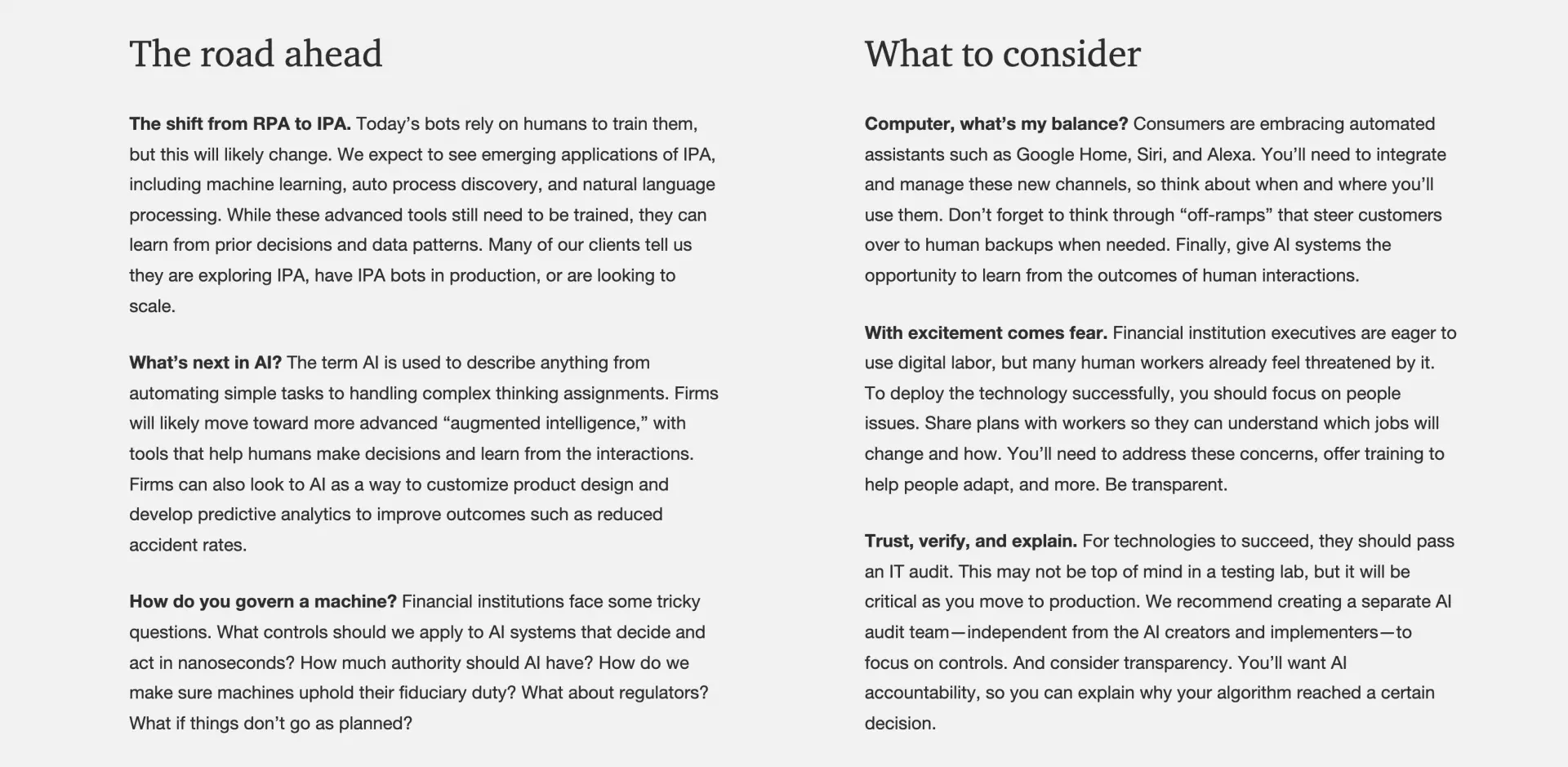As many applications of machine learning are mainly focused on solving the challenges associated with profitability needs, competition with other firms, and demands of financial regulations. Integration of technology advancements always reveals several given potential benefits and risks for financial stability which is the need of the hour for the lending industry. Over the years, the growth in technology and the availability of more financial data, AI, and machine learning can contribute to a more efficient financial lending system.
The financial industry is rich with data when it comes to information like credit decisions of individual customers, financial markets, insurance contacts, and customer interactions. But not knowing how to use these hidden data resources to the optimum is keeping many traditional banks and finserv companies from developing at full capacity. Here are some of the potential ways in which AI and machine learning can be leveraged to churn data and get some value out of it.
- Financial institutions and lending vendors can leverage AI and machine learning techniques to harness customer data to extract insights on credit quality to price and market insurance contracts to automate client and customer interactions.
- Finserv and banking institutions can optimize scarce capital with AI and machine learning techniques to test and analyze the market trends, and capital gains on trading large positions, hedge funds, broker-dealers, and trade execution.
- Financial lending institutions can integrate this technology for scaling regulatory compliance, surveillance, data quality assessment, and fraud detection.
Importance of Machine Learning in attaining Financial Lending sustainability?
Financial industry eagerly looking to adopt AI solutions, it becomes important to understand where in your business AI can play a vital role to help with lending operations. Traveling back, many bankers have developed trust with FICO credit ranking systems.
However, with continuous innovation and evolution, lending rates and mortgage practices continue to change. FICO- which has worked very well in the past has stopped being scalable for future practices, has raised questions among bankers globally, what comes next?
The banking and lending industry is evolving at a rapid pace with the evolution of new technology innovations, changing consumer metrics, geopolitical dynamics, and unpredictable demographic trends.
Because of reasons like this, a new form of credit checking, banking, loans, and mortgages needed to be developed and practiced. And banks and lending institutions started to show interest in AI and ML applications. Machine learning and AI in lending and banking have brought new perspectives to fill in the limitations of FICO as a system.
5 Use Cases of Machine Learning in the Finance Industry
1. Personalized Products & Services
Gone are the days when financial services only meant saving money in the bank or taking a loan from it. Machine learning expands the gamut of financial services by means of what are called as consumer financial services. Consumer financial services keep the consumers and their unique demands at the core of their highly optimized offerings. Machine learning makes it possible to provide consumers with a personal financial concierge that automatically lets you decide a suitable style of spending, saving, and investing that are based on your personal habits and goals. With machine learning in finance, it’s possible to create intelligent products that can learn from your financial data and determine what’s working for you and what’s not, and help you track your financial activities better.
2. Reduced Cost of Transactions
This is something we all must have experienced and would, therefore, agree with. Machine learning in finance has automated processes and drastically reduced the cost of serving customers. While machine learning has, on one hand, reduced the cost of financial services, on the other, it has made financing extremely convenient to avail. Through various digital servicing channels, Machine learning is proving effective in attracting that large section of the population to financial services, which previously found them cumbersome, expensive, and time-consuming.
3. Newer Management Styles
Machine learning in finance is opening up new avenues for banking and insurance leaders to seek advice. No more are financial experts limited to human opinions in order to make forecasts or recommendations in the field of finance. With machine learning in finance, these leaders can now ask machines questions that are pertinent to their business and these machines can, in turn, analyze data and help them take data-driven management decisions. As far as consumers are concerned, they can have their financial portfolio managed at essentially no management fee and with high efficiency, as opposed to availing the services of a traditional advisor who may charge around 1% of your investments.
4. Pre-Empted Fraud Scenarios
With machine learning, it is possible to simulate umpteen situations where a fraud or cyber crime may occur. Machine learning in finance, therefore, follows a proactive approach to making the financial services’ environment safe and breach-proof. Unlike before, designers of a financial service system do not need to wait for an incidence of fraud to be detected and then secure a system. Machine learning is helping the field of finance innovate freely by securing its products and services through a continuous understanding of human psychology. Besides, machine learning in finance also helps keep a strict regulatory oversight. Machine learning ensures that all policies, regulations, and security measures are being sincerely followed while designing and delivering any financial service.
5. Automation of Transactions
Critical decisions in fields like finance cannot afford to be marred by the inaccuracy involved in human decisions. Machine learning in finance implies thorough research, understanding, and learning over long periods of time and vast volumes of data. Machine learning introduces automation in areas that require high degrees of incisiveness thereby, safeguarding the trust of consumers.
The Future of Machine Learning in the Finance Industry
Machine learning is all about continuous learning and re-learning of patterns, data, and developments in the financial world.
It gives financial organizations more flexibility to build upon their current systems, products and services.

Successful banking-related chatbot interactions will grow 3,1505% between 2019-2023.
826 million hours will be saved by banks through chatbot interactions in 2023.
79% of successful chatbot interactions will be through mobile banking apps in 2023.
How Can Machine Learning Be Used in Finance?
Some of the most widely adopted applications of machine learning in finance include fraud detection, risk management, process automation, data analytics, customer support, and algorithmic trading. The use of machine learning in finance is evolving and aiming to move towards autonomous finance.
According to Gartner’s 2022 finance executives survey, finance has heavily invested in technology: general ledger technology, a financial close solution, or workflow automation. These technologies have already been deployed in over half of the functions. The study also notes that most executives are aiming for a touchless financial close by 2025, meaning that the entire financial close process is being executed autonomously without intervention from human employees. Clearly, artificial intelligence and machine learning are fast becoming the future of financial services.
Why Should We Use Machine Learning in Finance?
Choosing the right technology that can deliver value is paramount to investing. Here are seven use cases of machine learning in finance that you should consider.
Financial Forecasting
Machine learning is unparalleled in predicting financial trends. By analyzing large data sets, it can predict future trends and identify forthcoming risks and opportunities that drive better investment decisions.
Advanced Customer Support
Machine learning can greatly improve customer experience and support with the help of chatbots. These chatbots provide instant support and personalized recommendations, financial advice, and resolve basic queries. This advanced customer support use case is especially valuable for businesses with a large customer base.
How Can Emeritus Boost Your Career in Machine Learning in Finance?
Artificial Intelligence is the present and the future of the finance industry. The capacity of machine learning to improve accuracy and control risks has become critical to the growth of the financial sector. Machine learning in finance is a relatively new and emerging technology to stay at the top of the field. Finance professionals can greatly benefit from short-term online courses that can equip them with the knowledge and credentials necessary to advance their careers. If you wish to upskill, check out Emeritus’ diverse catalog of machine learning courses taught by experts from the world’s best universities.



